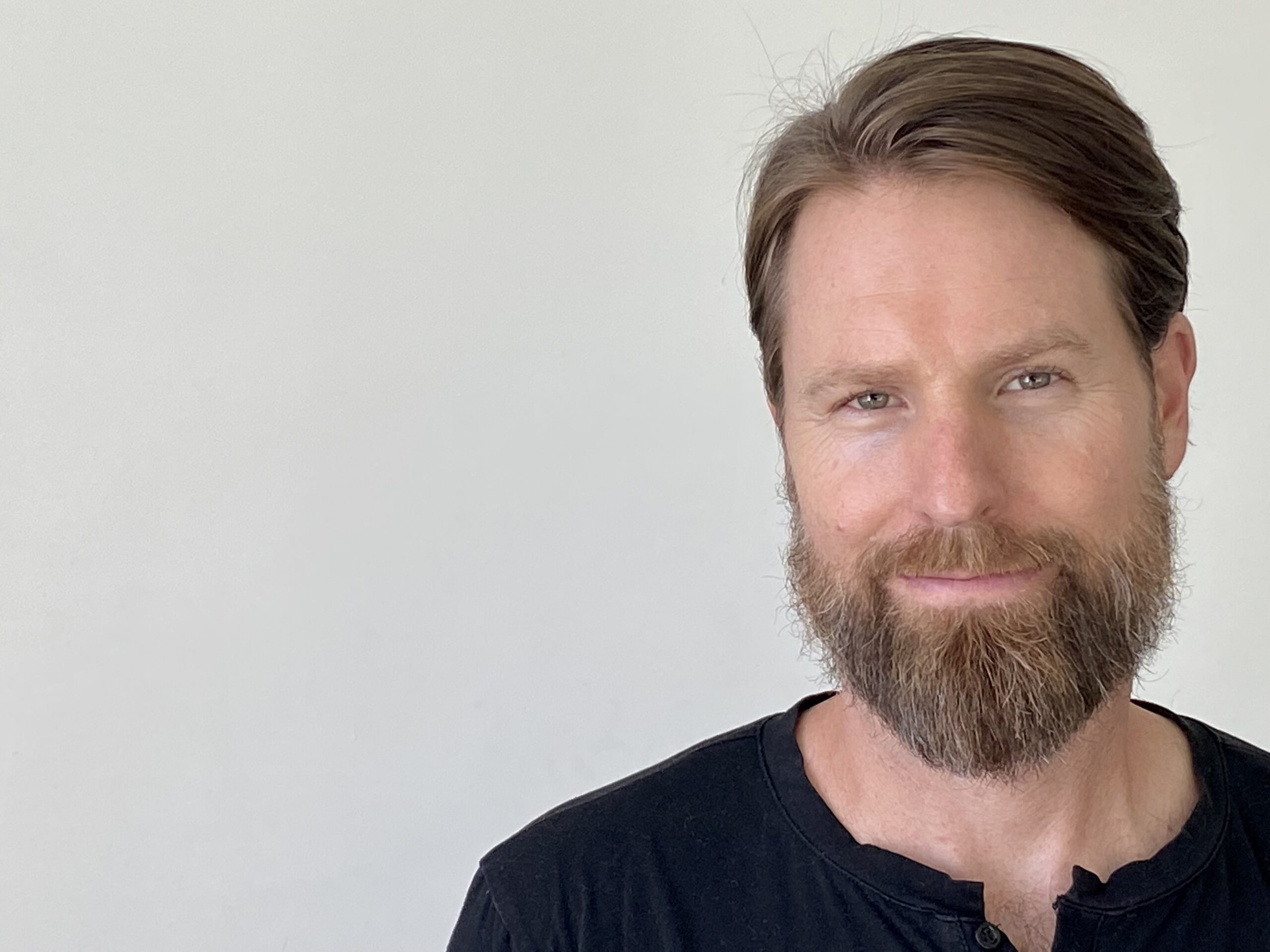Formula for Success with Mark Watson
How does one of the most founder-friendly VCs think about and evaluate new opportunities? Mark Watson shares his thoughts on meeting and evaluating founders and their ideas!
Listen to us On
About the Episode
LifeBlood: We talked about having a formula for success, the difference between tech companies and tech-enabled companies, how business is different and similar today versus 30 years ago, and how to become a better thinker with Mark Watson, Founder and Chairman of Aquila Capital Partners.
Listen to why everyone, not just founders, can be entrepreneurial!
For the Difference Making Tip, scan ahead to 19:43!
You can learn more about Mark at AquilaCapitalPartners.com, Twitter and LinkedIn.
Thanks, as always for listening! If you got some value and enjoyed the show, please leave us a review wherever you listen and subscribe as well.
You can learn more about us at MoneyAlignmentAcademy.com, Twitter, LinkedIn, Instagram, Pinterest, YouTube and Facebook or you’d like to be a guest on the show, contact George at [email protected].

George Grombacher
Lifeblood Host

Mark Watson
Guest
Episode Transcript
Come on
one minute blood. This is George G. And the time is right. welcome today’s guest strong and powerful Mark, Mark Watson. Mark, are you ready to do this? I’m ready. All right, let’s let’s let’s go. Mark is the founder and chairman of Akilah Capital Partners. He’s an entrepreneur has been investing in innovative companies growing businesses for more than three decades. are excited to have you on tell us a little about your personal lives more about your work and why you do what you do. Well, thanks for having me this morning, George. And I guess I’d say when I’m not being a dutiful father, husband and building businesses unlikely racing sailboats in the ocean, climbing mountains, snow skiing, Riding Mountain bikes.
Unknown Speaker 0:55
I guess you could say I enjoy extreme sports to take my mind off of an otherwise busy work day. And it seems to work.
george grombacher 1:04
Nice. I appreciate that.
What is it about? Well, I don’t know what the best question is, what is the best jumping off point? How do you decide what to focus your attention on? When when you wake up in the morning? Do you already know? What what what you’re going to be doing? Is is your day pretty planned out? How does that work for you?
Mark Watson 1:27
You know, I try it? That’s a really good question. I try and plan out about half of my day. And, and I try and leave kind of half of my day open to things that I I think are going to happen during the day. And, and that’s a, that’s a habit that I purposely created years ago, when I realized that you can spend your whole day meeting people, and then you get to the end of the day, and you wonder what you accomplished and, and I remember when I was very young, I had a I had a boss who said to me, you know, you may think you’re really busy, but sometimes you may confuse activity for for accomplishment. And I was like, Ah, good point. And, and I can’t tell you how many times I’ve tried to meet with people who used to work for me, they’re like, you know, I’m so busy. I got a 10 o’clock and a two o’clock and whatever. And I look at their calendar, and I’m like, well, when do you have time to think and when do you have time to deal with stuff? And they’re like, uh, that would be problem. I’m like, Yeah, exactly. So, you know, I look, I always try and find time to think about things as they happen during the day and find a little downtime, but otherwise a pretty a pretty program today, looking for opportunities or or
Unknown Speaker 2:52
talking to portfolio companies along the way.
george grombacher 2:58
It’s, it’s fascinating to me that we need to it strikes me that we need to focus more on thinking on having more space just to be able to think and process information. And it’s kind of weird, that that needs to be talked about. Is is that odd to you?
Mark Watson 3:21
Well, I guess having done it for so long. No, but But yes, because most people don’t. And I remember again, years ago, I would be sitting in the boardroom with my board of directors.
And we would be talking about all the different things we had going on in the company. And at this point in time, we were trying to go from being a US based business to a global business. And it was really, really busy. And, and I think I was talking in an animated way. And my hands were probably flailing around a little bit and, and one of my colleagues on the board looked at me because Mark, you’re supposed to be thinking about what everybody’s going to do not doing and I’m like, I know, I am doing that. And but, and but you know, it’s like sometimes you’ve heard that expression, you’ve got to slow down to speed up. And so frequently, you’ve got to just kind of take a timeout and really think through what matters, right? And what really needs to get done instead of just reacting to what’s coming at you. And, you know, how often do we want to just reply to that last email that just came in sometimes when we’re in the middle of a meeting, as opposed to being more thoughtful about how we use our time. And not surprisingly, the more thoughtful you are probably the more successful you are. Right? That’s that that’s not surprising. I guess it sounds easy, but does hard kind of a thing.
george grombacher 4:57
So I am At the top, I talked about how you’ve been growing businesses and investing in innovative companies for more than three decades. And what an innovative company is, was different three decades ago than it is today. As you’re talking to new companies who want to grow and want your firm to invest in them, how do you how do you take in new information about a new technology and make a decision about or educate yourself on this is a good thing or a bad thing, this is something we want to put our money into?
Unknown Speaker 5:35
Well, you know, in some ways, we’ve kind of gone in a full circle from, from 20 years ago, to today. And so the narrative may be slightly different. And, and the lexicon may be slightly different, but, but there are more things that are that are similar than they’re different. And actually, let me go through them. Because I think it’s, it’s kind of really useful. So right now, we’re in this era where, where technology is really transforming a lot of businesses, technology, it’s different today than before, is, technology is more available, it’s less expensive. So more people can adopt it, and use it, use it, which makes it more pervasive, which actually means that you’re getting these these transformational benefits. But But today, you know, the buzzword is disrupt everybody thinks they’re gonna go disrupt pick an industry doesn’t matter. There’s, there’s some new disruptive business or, or self proclaimed disruptive business in almost every industry, and then just go back 20 years ago to the.com era. And I have to remind people that that what the.com era is because it’s funny how, after 20 years ago, after 20 years go by, you kind of forget, sometimes you kind of forget what happened, or you might have been in school back then. So you don’t, you don’t actually know. And I think that has a lot to do with, with, with how history repeats itself. But I remember back in in 99, and 2000. So during the.com era, I actually lived and and in ran a business in Menlo Park, one of my portfolio companies was based out there. And by the way, this was not a very tech enabled company. And we were trying to transform it into one. So think of the irony of that. And, and, and actually, if you go back, and you look at all the the, what were then called.com companies, what we would call today, tech companies or in my space fin tech, or insure tech companies, if you look at all the companies that started back then almost all of them failed. I mean, we have I mean, back then there were like, what five pet food companies and, and five online grocery retailers, but but nobody really nobody really thought through how to actually deliver the value to the customer that they were pitching on the internet or, or on the radio or wherever. And, and also, I think people didn’t think about how much it really costs to build a brand. And so you’d see these, these VC backed companies blow through 10s of million, or in some cases, hundreds of millions of dollars. And then finally give up because all of a sudden, the the narrative went from, well, how much are you going to grow this year to? Well, do you think you’ll ever make money? And, and you look at so many of these business models, by the way, the dog food companies were a great example back there, the pet companies were a great example back then their cost of their customer acquisition costs was so high that they were never going to make money, but they were just throwing, you know, one round of venture funding after another to keep ramping revenue, even though the bottom line was never going to catch up. Now, I don’t know if that sounds like your familiar narrative. But a lot of that’s happening again. And so I think it’s kind of interesting to toggle back and forth between how people were trying to use technology and grow 20 years ago. And and and how they’re, they’re using it today. And I come back to what I said a minute ago, which is because it’s less expensive because it’s easier to use. It really is making a difference in a lot of tech and I will a lot of companies call themselves tech companies but what they really are tech enabled businesses. That’s actually where I spend a lot of my time and focus because there’s some really exciting things to go going on right now.
george grombacher 10:03
Yeah, that certainly makes sense. There are companies out there that are in the lawn care industry who refer to themselves as tech companies, but they’re technically, technically probably just a tech enabled company. So when. So a pet food company, not a tech company, a tech enabled company. But here’s here, here comes a big buzzword for you, but an artificial intelligence company that strikes me as potentially a tech company, and new and weird technology that I can’t get my brain around to listen to a podcast with Eric Schmidt yesterday, and I got terrified.
Unknown Speaker 10:42
Yeah, so So yeah, if an AI company isn’t a tech company, I don’t I don’t know what. And but but it is, it’s kind of frightening on a lot of different levels. You do have to wonder, you know, is there going to be a world and Elon Musk has talked about this as well, where machines kind of take over? And, and, and all of a sudden, we’re left being a part of the matrix? If you recall that that movie, all of a sudden you think, wow, could that could that really happened? Here’s, I, here’s the good news or bad news. I don’t, I don’t know how to say that. But just like most companies are not disruptive. Most AI businesses are really not AI businesses in the sense that there’s not that much machine learning going on, they haven’t figured out how to use neural networks, a lot of think of AI today anyway, as more aspirational, or a lexicon for companies that have figured out how to create algorithms from from their consumers behavior, or their business partners behavior, that they can then do something, do something more useful with make it easier for you to, to know what you want to watch on Netflix, make it easier to know what you want to buy on Amazon. I mean, I’m just taking some very simple examples. In, in the insurance industry, figuring out where losses are really going to, to happen, whether global warming really is playing a role in and catastrophic events today, and particularly the the intensity of storms that seem to to happen, not really as often, not any more often than in the past. But when they do happen, they tend to be a lot bigger. So so there are there, there’s a lot of data getting crunched trying to figure things out right now. But not too many companies have made it to that next level yet, but it’s coming, you can see it. And again, part of that is because the cost of technology is so much less today than it was before. And also the cost of storing data is less than it was before. And you’ve got to have massive data storage facilities in order to be able to crunch that data in an in an AI environment. And by the way, now, we’ve now exceeded my knowledge of AI and I am invested in a couple of AI companies.
george grombacher 13:15
I think that that’s the right. But that’s kind of a it’s an interesting thing, right? Because you’re obviously well, I My perception is you’ll never be an expert in the companies that that you invest in. That’s the reason you’re investing in those companies, because you’re expecting or hoping or banking on that the people who are running those companies are in fact, the experts, and they have a unique knowledge and have a business plan and a some kind of a framework or system that you think is going to win the day?
Unknown Speaker 13:44
Well, the answer is yes. But what I’ve found, I’ve found two things. And again, part of what I’m going to say applies to, to first time entrepreneurs, who have really good ideas and have come up with what they think is that killer app or killer product, but they’ve never run a business. And the other thing that I’ve found and so so they’re not really quite sure how to navigate that. But the other thing I’ve found is that, that the toolbox that it kind of takes to build a business really transcends one industry to another. And, and I’ve been doing this long enough now that that I’ve been able to prove that with portfolio companies in half a dozen different industries, most of them FinTech, but, but there’s plenty of consumer companies in there as well. And so that’s what I really enjoy is knowing that there’s a formula of how to build a business and and helping founders and their teams build their toolbox, so that they they can go out and block and tackle once they figured out their strategy to go build their business because there is there is a real formula to going about it as opposed to just trial and error.
george grombacher 15:02
Got it? And if you don’t know that, then you don’t know it?
Unknown Speaker 15:07
Well, you know, well, that’s what, you know, by the way, trial and error is also referred to as innovation.
george grombacher 15:15
So you did, you can innovate your
Unknown Speaker 15:17
way there. But also, you know, or you can be really thoughtful in who you bring in as an investor. And and that’s really kind of how we started a Keila. Back in the late 90s, we had this notion that, that new entrepreneurs, were going to come up with much better ideas than us. But they’d not part of them really hadn’t, most of them hadn’t really ever run a business before. And so we said, Well, look, why don’t we partner our operational and strategic know how, with their ideas, and also we’ll write a check. And, and it’s actually, it’s actually been been really, really good. In fact, earlier this year, earlier this month, Ink Magazine came out with their their first ever founder friendly list. And I’m happy to say Akilah made that list and they interviewed a number of of our portfolio, company CEOs and ask them a lot of pointed questions about whether we really were helpful, or if we just said we were and wrote a check. So that was pretty good validation.
george grombacher 16:24
Yeah, for sure. Well, congratulations there. Appreciate that very much. I imagine that you’re a curious person. And and when when you get pitched, or I use the wrong language, what do you have the opportunity to meet with a, a founder, a potential person you’re going to invest then is that is it as exciting today as it was when you started? Tell me a little bit about those those those feelings as as you’re walking into that meeting?
Unknown Speaker 16:57
Well, you’re right, I am a very intellectually curious person, and, and try very hard to work with other intellectually curious people. And not surprising, not surprisingly, most founders are pretty intellectually curious. So that’s how they came up with the idea to start their business. I’m as excited today when I walk into a room and meet a CEO for the first time. Today as I was before, in fact, sometimes I get even more excited today, because I can more clearly see the potential, and the runway to get there or the path to get there. Whereas when I was younger, too, yeah, by the way, so when I started Akilah, I was in my early 30s. So that same boss, I referred to earlier used to tell me back then that I was seldom wrong and never in doubt, when I was in my 20s. And I think, I think we can all relate to that. And but that’s kind of what keeps us moving ahead is that we have these ideas that we’re pretty sure are going to work if we can just stick with them. And so, so, you know, with with now a little more experience of what works and doesn’t work. And, and an ability to apply that pretty instantaneously in a meeting. It’s even more fun today, because you can just see how you’re going to get there. Or conversely, you see what’s not going to work and you say thank you for your time and move on to the next thing.
george grombacher 18:27
Yeah. Is it? Do you view that as as a responsibility to say, hey, I don’t think that this is gonna work? Or do you only reserve feedback like that? If somebody asks, or do you just keep it to yourself?
Unknown Speaker 18:45
Oh, gosh, you know, it depends. I’m more likely to give the feedback than not. The only time I would is if it’s pretty clear to me, the person doesn’t want to hear it. Then, by the way, that’s pretty rare. But it does happen. And in which case you go, okay. And, and usually, it’s the people that are it. It’s usually the people that that have not done something before. And so they don’t know what they don’t know. Even serial entrepreneurs that I’ve worked with, they’re actually more interested in the feedback because they can process it better. And they may not. They may not decide to that it’s useful, but but at least they hear it.
george grombacher 19:32
I like it. Well, Mark, we veered a little bit from what we were intended to talk about, but people are ready for your difference making tip. What do you have for
Unknown Speaker 19:41
them? I think my difference making tip is, is everyone can think like an entrepreneur if they want to. They’ve just got to have a good idea and or, you know, I was talking about toolbox earlier. And so if you take the time to hone your your craft, then you’d be surprised how valuable that is to other entrepreneurs. So maybe you don’t have that great idea. But you can help those entrepreneurs with their great idea. And and join an entrepreneurial team because you bring something to the table that that other people don’t. So my tip is, go hone your craft and be very good at something and make sure people know you’re very good at it.
george grombacher 20:24
Well, I think that that is great stuff that definitely gets come up. Come on. Mark, thank you so much for coming on. Where can people learn more about you? How can they engage with you?
Unknown Speaker 20:34
So if you’re an entrepreneur, you can go to my my website, which is a Keila AQ, you i La vc.com. And I’ve got that toolbox out there that we’ve talked about, or probably the best way to get the one on one is to just go on to LinkedIn and shoot me a message on LinkedIn. And I really do reply, every message might take me a day, but I reply to everybody.
george grombacher 21:00
Excellent. Well, if you enjoyed this as much as I did show, mark your appreciation and share today’s show with a friend who also appreciates good ideas go to a key love VC. com that’s aqui LA, VC calm. And check out the toolbox we’ve been talking about and then find mark on LinkedIn as well. Thanks again, Mark. Thank you, George. And until next time, keep fighting the good fight. We’re all in this together.
Transcribed by https://otter.ai
More Episodes
How to Overcome the Fear of Running Out of Money in Retirement with an Annuity
One of the most common fears among retirees is running out of money. After working for decades, the last thing anyone wants is financial insecurity during their golden years. The fear of outliving your savings can be paralyzing, leading to stress and uncertainty....
The Power of Minimalist Money Habits: Simplifying Your Finances for Greater Freedom
In today's fast-paced world, it’s easy to get overwhelmed by the complexity of managing finances. We’re bombarded with credit card offers, investment options, and various spending temptations, all promising to help us live better lives. Yet, in the midst of it all,...
The Right Questions to Ask Yourself When Considering an Annuity for Retirement Income Planning
Annuities can be a powerful tool for creating reliable retirement income, but they’re not a one-size-fits-all solution. Before purchasing an annuity, it’s essential to evaluate whether it aligns with your financial needs, goals, and risk tolerance. Asking the right...
How to Guarantee You’ll Never Run Out of Money in Retirement
One of the biggest fears retirees face is outliving their savings. With rising life expectancy, unpredictable markets, and increasing healthcare costs, ensuring that your money lasts a lifetime is a top priority. Fortunately, there are strategies you can implement to...
How Taxes Can Reduce Your Income in Retirement
When planning for retirement, it's easy (and prudent) to focus solely on saving enough money or making wise investment choices. However, one crucial factor that is often overlooked in retirement income planning is taxes. While many retirees expect to pay less in taxes...
The Benefits of Stock Dividends for Retirement Income Planning
As we approach retirement, one of our primary goals is to ensure a reliable income stream to sustain our lifestyle. While there are several options available for generating retirement income, many retirees are increasingly turning to stock dividends as a key component...
The Value of Fixed Annuities in Retirement Income Planning
As retirement approaches, people find themselves grappling with the challenge of ensuring a reliable income stream during their golden years. One popular solution to this problem is the fixed annuity, a financial product that offers a guaranteed income for life or a...
Your Personal DOGE
Your Personal DOGE The DOGE is about to take a knife to the federal government. Could you benefit from a personal DOGE to cut some of your expenses? George G talks about how to reduce your overhead and get moving in the right financial direction!About the EpisodeThe...
Getting What You Need with Elizabeth Husserl
Getting What You Need with Elizabeth Husserl The pursuit and acquisition of money only goes so far. Elizabeth Husserl talks about how to make sure you're getting what you need!About the EpisodeWe focused on getting what you need, how all human needs are universal but...
Join the show.
Interested in being on the show? Tell me a little bit more about you and what you’d like to talk about!













